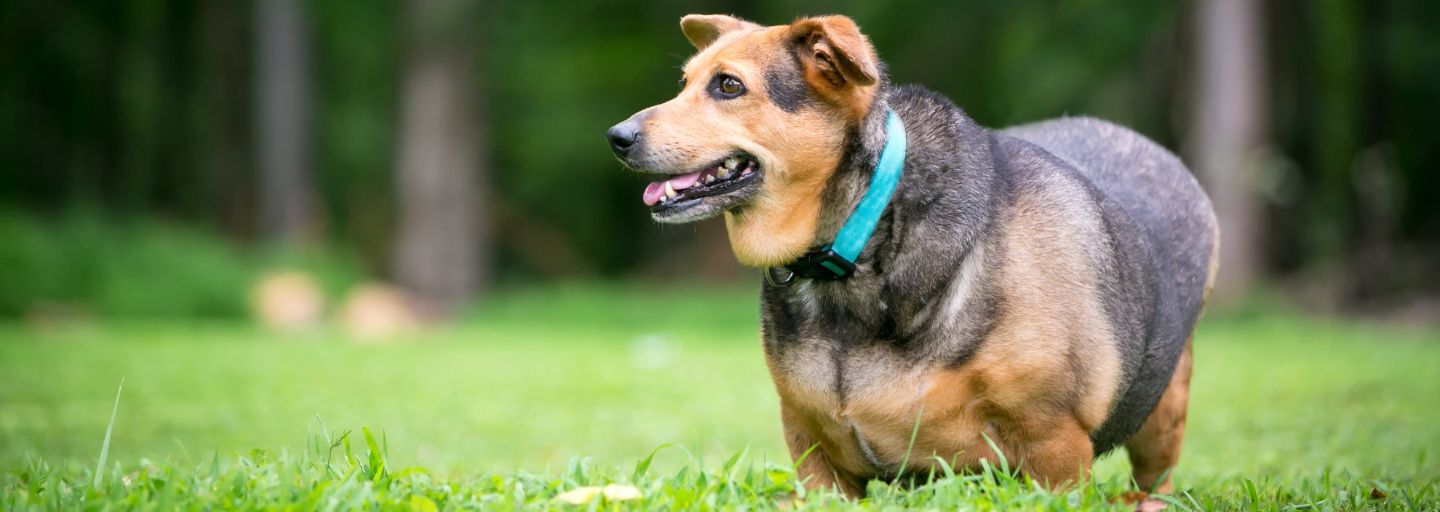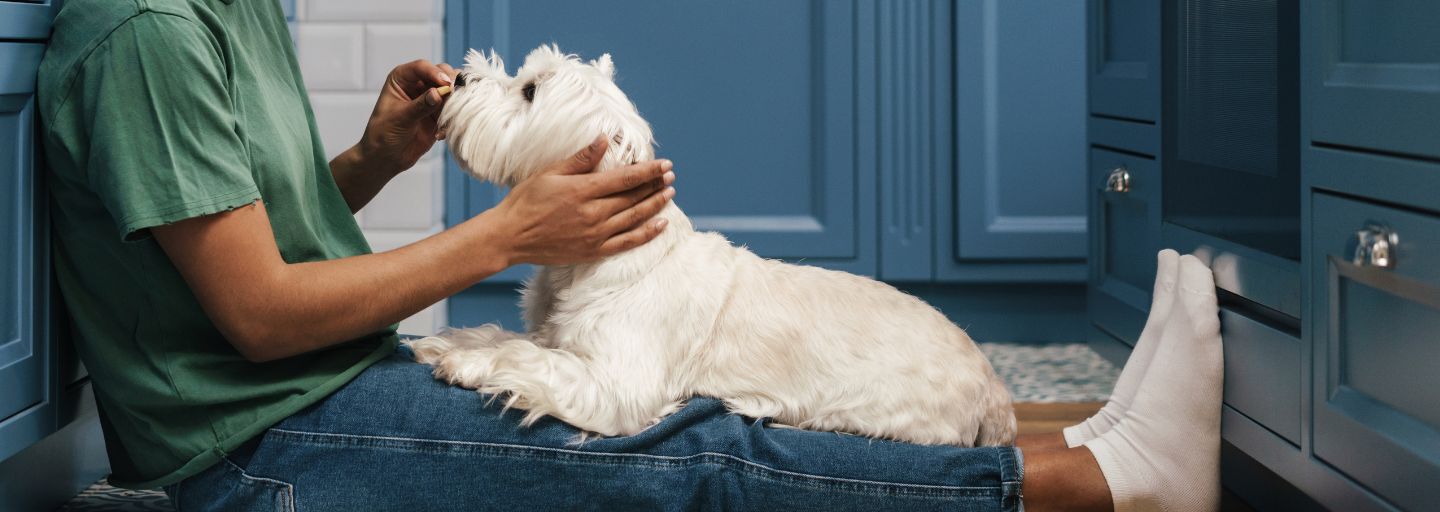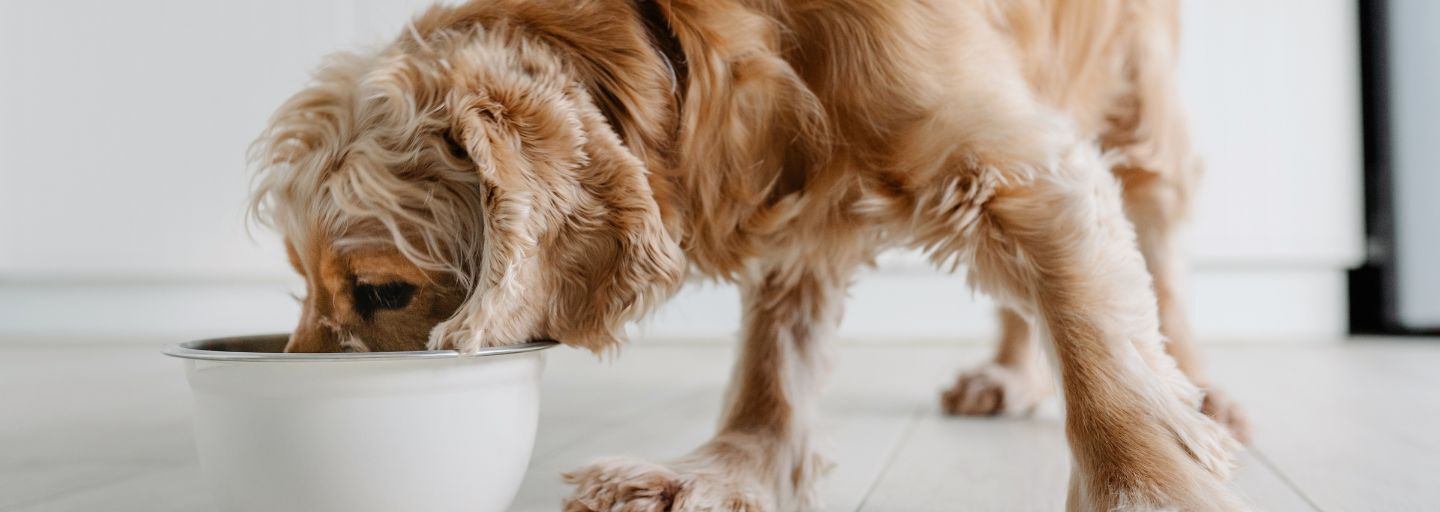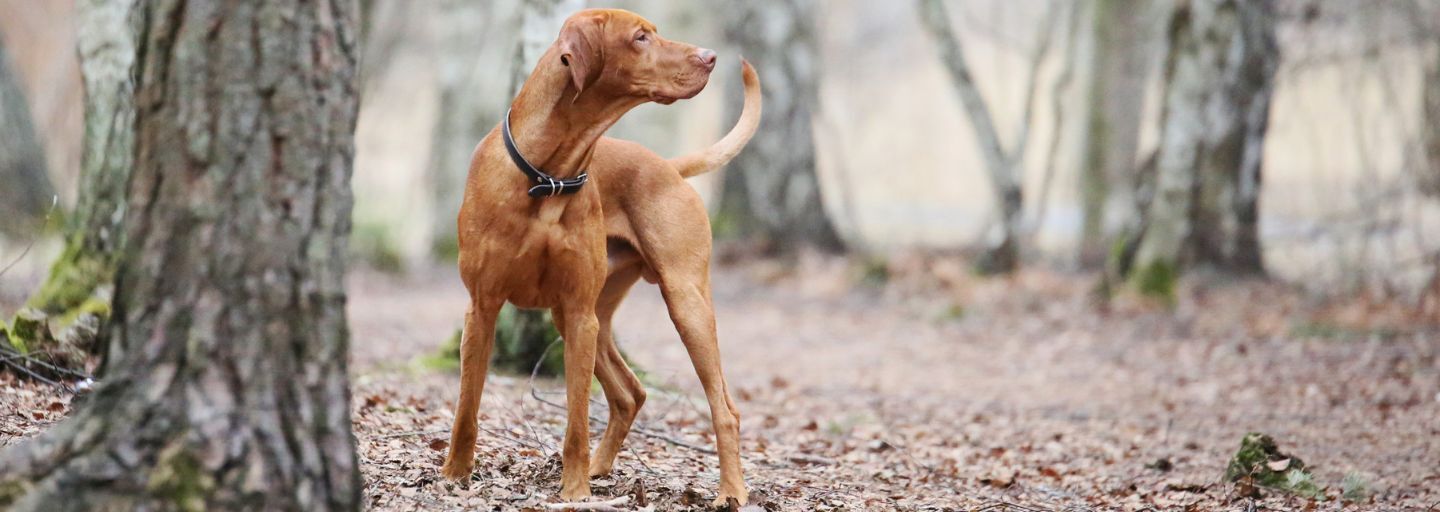Maintaining a healthy weight is crucial for the overall well-being of our furry friends. Just like humans, dogs can also struggle with weight issues, and as responsible pet owners, it's important to recognize if our dogs are overweight. Luckily, determining if your dog is carrying excess weight can be done through a simple body score check that you can perform at home. In this article, we will guide you through three easy steps to assess your dog's body condition and discuss the necessary changes you can make to help them achieve a healthier weight.
Body Score Steps
• Feel for ribs:
"Run your fingers along the ribs, both sides, and see how easily you can palpate those ribs, feel them. In an ideal body-condition score, it should feel like running your fingers over pencils in a breast pocket,” says Purina veterinarian Dr. Zara Boland. Using your hands is important. Looking isn't enough to determine if your dog is overweight since their coat may make a visual check difficult.
• Check the waist:
“The next thing you want to feel is a nice waistline.” An overweight dog won’t have “an hourglass shape when you look down from above and you can feel that by running your hands along the ribs and they should tuck in as soon as you reach the end of the ribs and come to the waist. It's an ideal body-condition score for us, we want the same for our pets,” says Boland.
• Take a side view:
“And the last thing you're looking for is what we call a tummy-tuck. So when you view your pet from the side, you want the tummy to tuck up backwards towards the hind legs. We don’t want a hanging belly—we’re looking for a nice, neat, tummy-tuck,” says Boland. That said, it’s also important to know if your dog’s breed makes them appear overweight. Your veterinarian can provide insight on this.
It’s Time to Make Changes
If the body check indicates your dog is overweight, it's time to change the routine and habits you've set. Just like you, weight loss for your dog comes down to calories. To shed the weight, your dog will need to burn more calories than they consume. Look to make a change to both diet and exercise for successful results.
Reduce calories:
Empty calories (ones that do not have health benefits) add up quickly. Select a food that is complete and balanced and cut out all extra calories:
- Eliminate table scraps
- Limit treats (no more than 10% of daily calories)
- Feed foods with balanced nutrition and explore the Purina range.
- Consider a healthy weight management food for your dogs (this is available in both our Supercoat and Pro Plan ranges)
- Develop a holistic dietary plan with your vet
Increase exercise indoors and outdoors:
Dogs enjoy being active. Stimulate them inside or outside to build muscle strength, burn calories, and promote fitness:
- Take long walks or run and hike regularly
- Create indoor challenges for climbing and jumping
- Increase their training with tricks and games
- Present stimulating/interactive toys that simulate hunting.
Taking care of your dog's weight is a proactive measure that promotes their longevity and quality of life. By regularly evaluating their body condition and making necessary adjustments to their diet and exercise routine, you can ensure that they stay fit and happy. Remember, the guidance of a veterinarian is invaluable in this process, as they can provide personalized advice based on your dog's breed, age, and specific needs. With your dedication and commitment, you can help your furry companion achieve and maintain an ideal weight, setting them on a path to a healthier and more fulfilling life together.







